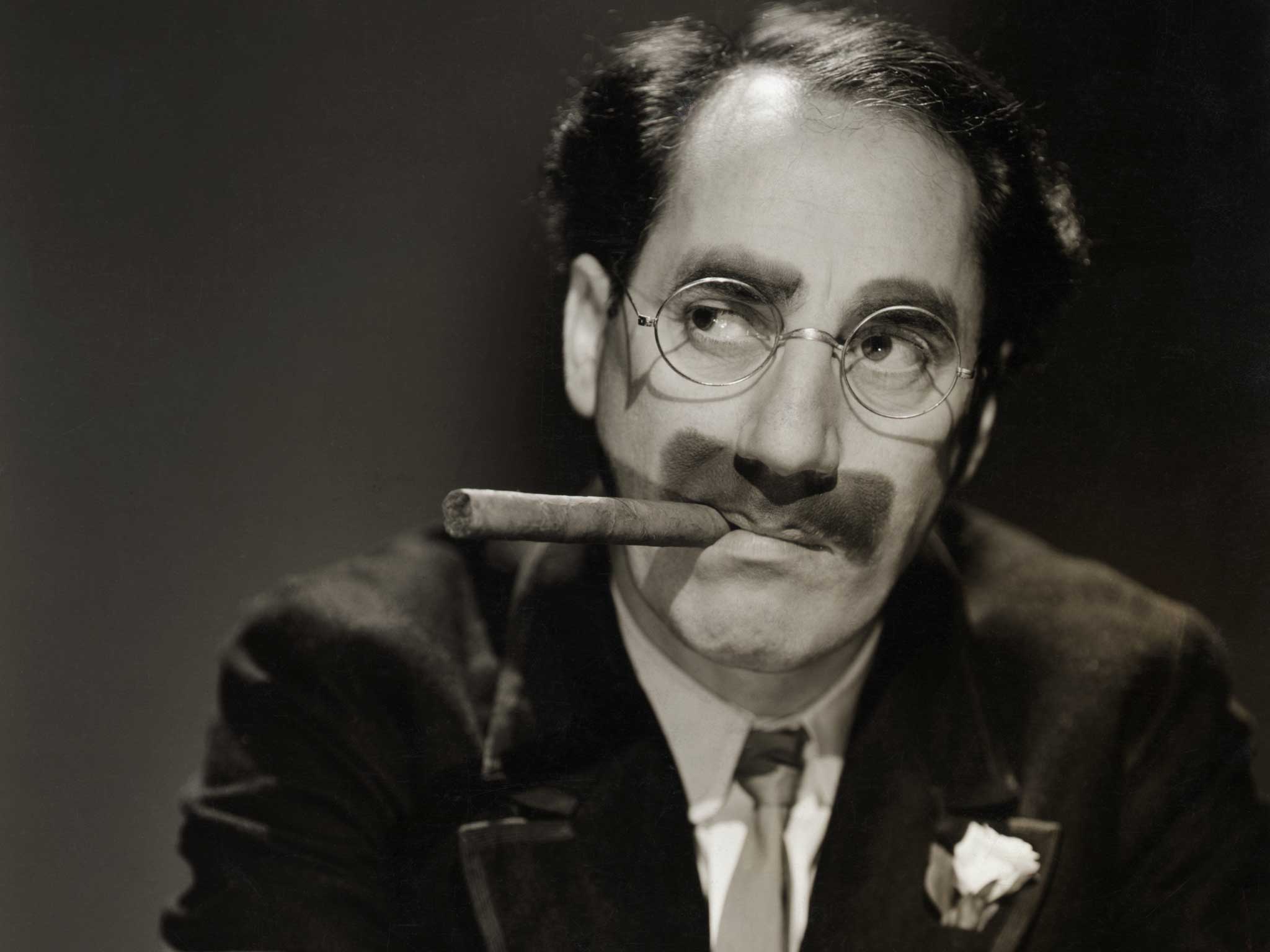Why Groucho Marx and TS Eliot didn't get on
A musical fantasy on Radio 3 recalls the disastrous encounter between TS Eliot and Groucho Marx in 1964

There's truth to that old adage "never meet your heroes".
Almost 50 years ago to the day, an unlikely dinner date took place between TS Eliot and Groucho Marx. Each a huge fan of the other's work, Groucho and Eliot corresponded for three years before their meeting eventually took place. In June 1964, a car took the star of A Night at the Opera, Duck Soup and A Day at the Races, from the Savoy to Eliot's home nearby for a much anticipated dinner with his hero, wives included. Eliot wanted to hear about what it was like to make those movies, but Groucho couldn't remember the desired scene from Duck Soup and preferred to quote to Eliot the vast chunks of The Waste Land that he'd memorised. Eliot couldn't be less interested in hearing his own poetry spouted back at him. The meeting was a disaster.
It was the collected correspondence between the two celebrities that prompted Lenny Henry and his long-time friend and collaborator, Jakko Jakszyk, the singer with Robert Fripp's reformed band King Crimson, to bring the encounter to life for BBC Radio 3's experimental series, Between the Ears. The result is a fascinating part-documentary, part-fantasy words-and-musical piece written around the letters, for which Jakszyk has written a contemporary score. Henry plays Groucho, while Jakszyk, a former actor, plays Eliot. The poet and Eliot expert Craig Raine also features.
"They were both very excited about meeting," says Jakszyk. "Groucho had aspirations of being a writer at some level and suddenly he has a fan who is one of his heroes, and of course TS Eliot just thought Groucho was funny. So they were rather disappointed in each other. There's something melancholic about that."
That melancholy is captured in the delicate, piano-led score which runs throughout the piece, from the beginning track, which became the title of the programme, "Dear Mr Eliot", to the imagined discussion between the young wives towards the end. Also well captured is Eliot's seriousness which made his love of Groucho Marx so unexpected. "He comes across as the driest, most intensely serious man," says Jakszyk after sifting through hours of archive footage for his research. "So the idea that in his spare time he was going down to the cinema to watch the Marx brothers just seems mad." Jakszyk scores Eliot's serious nature with a schoolboy choir and harmonically harsh instrumentation which lend a sombre, academic air.
"That intriguing oddball thing about the unlikely nature of the pair's friendship is what struck us at first, and then the whole idea of fame," says Jakszyk. It's the nature of fame and celebrity and the expectations it attracts that Henry and Jakszyk set out to explore in their project. "There were anecdotal things from both of them about how they're a bit offhand with some fans and here they are both displaying exactly the same behaviour towards each other."
For example, Eliot wrote the first letter to Groucho, requesting a signed photograph. What he wanted was an iconic cigar-wielding portrait; what he got was a posed photo of Groucho looking serious. The disappointment was there from the start.
It's all brought neatly to fame in the present day. Lenny Henry muses on finding himself tongue-tied, and having to restrain himself from repeating jokes in the company of comedians who were his heroes and recalls forcing himself not to sing Joan Armatrading's songs while making her a cup of coffee.
"It's a human thing," says Jakszyk. "Although this is about TS Eliot and Groucho Marx, it's really a cipher about how two very well-known people in their own right are still subject to being impressed by somebody's ability or fame. It's all to do with expectation. If you meet your hero in real life you will have an unrealistic expectation based on a facet of themselves that they have utilised as their commercial currency. It is not necessarily representative of what they're like on a day-to-day basis. To me that's what this is about."
'Between the Ears: Dear Mr Eliot: When Groucho Met Tom' is on Radio 3 at 9.30pm on 14 June
Subscribe to Independent Premium to bookmark this article
Want to bookmark your favourite articles and stories to read or reference later? Start your Independent Premium subscription today.

Join our commenting forum
Join thought-provoking conversations, follow other Independent readers and see their replies